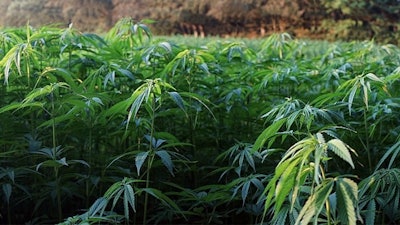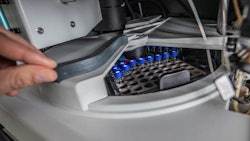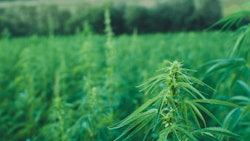
Delta-8 tetrahydrocannabinol (THC) has appeared in the U.S. Drug Enforcement Administration’s (DEA) “Orange Book” and is in an online version dated May 10. This list of controlled substances lists delta-8 THC as “[another] name” for tetrahydrocannabinols.
Tetrahydrocannabinols are listed in the Title 21 Code of Federal Regulations, Part 1308. However, the federal code doesn’t specifically list delta-8 as a scheduled substance, and the law states that “Tetrahydrocannabinols does not include any material, compound, mixture, or preparation that falls within the definition of hemp ….”
Shane Pennington, counsel at Vicente Sederberg, tells Hemp Grower that the inclusion of delta-8 THC in the Orange Book doesn’t make the cannabinoid a Schedule I substance or indicate that the DEA thinks it should be. Nor, if someone went to a court, would it have “the force and effect of law by itself.”
Rather, the DEA is offering “guidance” by including delta-8 in the Orange Book, Pennington says. (The DEA declined comment to Hemp Grower for this article.)
Here’s what that means, per Pennington: “Even if the agency doesn't have the resources right now, or hasn't done enough research to be sure what they think the law is on something …, the regulated public still wants to know what the agency thinks, because they’ve got to run their businesses and they want to be able to know, ‘Okay, well, even if it doesn't have the force and effect of law yet, I sure don't want to be doing something that the regulator thinks is wrong.’
“So, agencies will release guidance or informal statements that just say, ‘Here's what our current view is,’” he continues. “Then sometimes they’ll later follow that up with a more formal statement.”
However, this isn’t the first time the DEA has included delta-8 in the Orange Book, Pennington says. “I started digging into this and I saw DEA talking about and discussing delta-8 in relation to THC and all of these other things in some very old agency documents,” he said. “But none of those show that it's a controlled substance. They just show that delta-8 has been on regulator radars for a very long time."
More generally speaking, Pennington says delta-8’s federal legal status is unclear, which he has written. He says businesses should also consult with an attorney about their specific cases. ( "And I mean, I know I'm a lawyer saying that, but it's true, man," Pennington says.) Some things hemp business professionals may need to consider are labeling and interstate marketing, as states are banning delta-8.
“I just want to flag that every time you think you've covered the waterfront, you really have to think about all the different sources of law that apply when you try to answer these questions,” Pennington says.
Rod Kight, attorney and owner at Kight Law Office, told Hemp Grower via email that the Orange Book’s inclusion of delta-8 THC reflects its Schedule I status if it’s derived from high-THC cannabis. Delta-8 that is derived from high-THC cannabis is a Schedule I substance, he says, but delta-8 derived from hemp is not.
“[I]t is clear that D8 derived from marijuana is a Schedule I controlled substance based on the definition of ‘marijuana’ in the CSA [Controlled Substances Act] and also the separate inclusion of THC,” Kight says. “However, it is also clear that D8 derived from hemp is lawful pursuant to the 2018 Farm Bill, which exempts from the CSA ‘all’ cannabinoids from hemp with a D9 concentration that does not exceed 0.3%. Although D8 may be similar to D9, it is not D9. Moreover, the 2018 Farm Bill exempts THC in hemp from the CSA.”
























